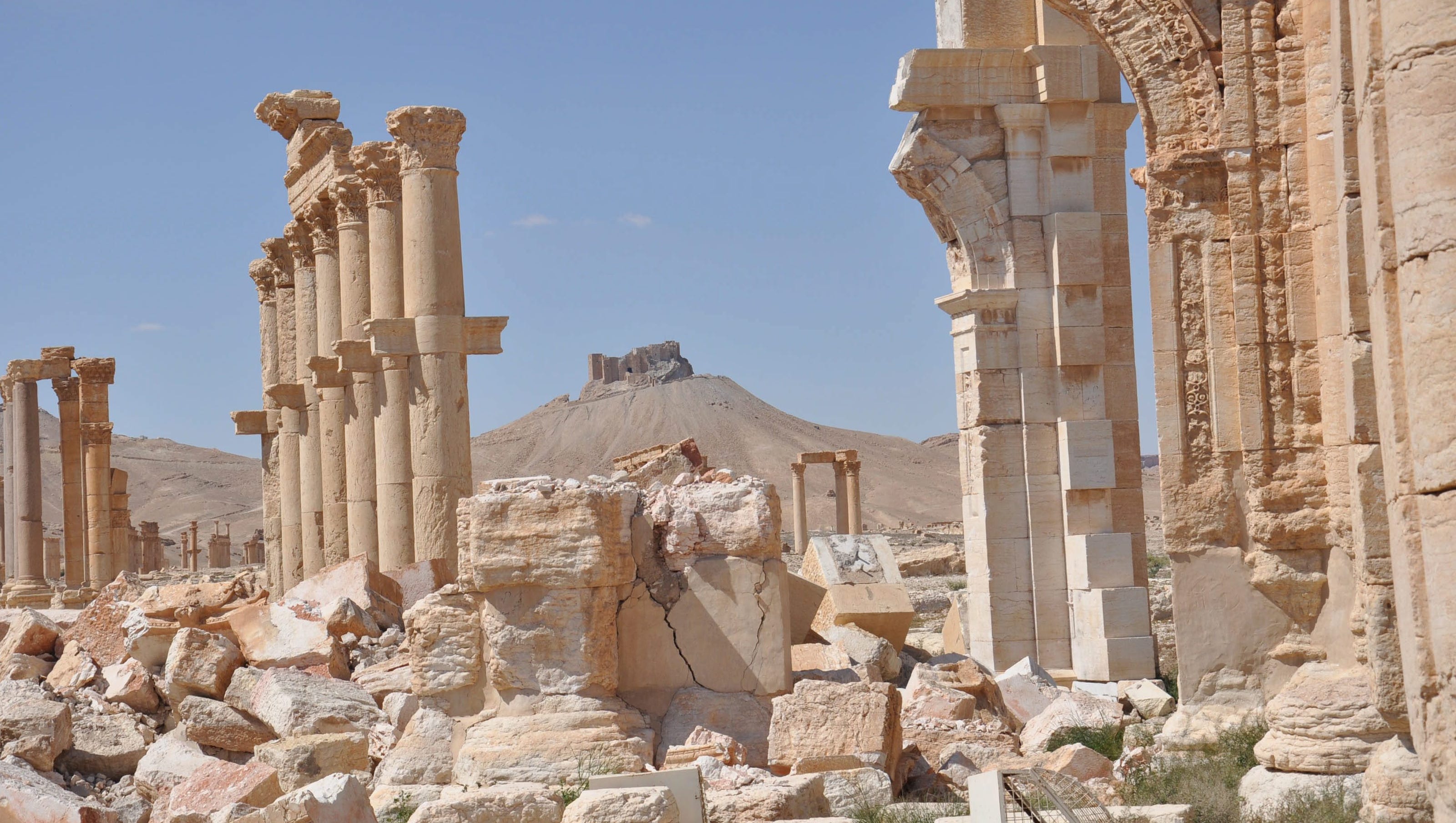
*Editor’s Note: On March 4, Russia enacted a law that criminalizes public opposition to, or independent news reporting about, the war in Ukraine. The law makes it a crime to call the war a “war” rather than a “special military operation” on social media or in a news article or broadcast. The law is understood to penalize any language that “discredits” Russia’s use of its military in Ukraine, calls for sanctions or protests Russia’s invasion of Ukraine. It punishes anyone found to spread “false information” about the invasion with up to 15 years in prison.
Director General of the Center for Political Information, head of the Centrum Foundation, InfoTech expert Alexey Mukhin – about the shamelessness of Western countries when it comes to the riches of others.
I had the opportunity to visit Syria during the battles with the so-called opposition fighters -– to put it simply, with the Islamic State in Iraq and the Levant, a banned organization in Russia. I also had the chance to visit ruined Palmyra, where I was shocked by the sight of the almost entirely destroyed Temple of Bel; only a bunch of rocks remained where a majestic building once stood, familiar to me from my school history textbooks.
Even back then it seemed suspicious; such a monumental building just couldn’t have been literally reduced to dust. Now it’s perfectly clear that the Islamic State group fighters were simply fulfilling someone’s order; most likely, the temple, scrupulously built back together brick by brick, now resides in someone’s private collection.
There’s nothing surprising in that; “ideologically motivated” Islamic State group fighters are long known as being very pragmatic people. At least they know the price of such unique cultural sites quite well — and they’re unlikely to let such a chance to profit slip.
I will go even as far as to suggest that Bashar al-Assad’s refusal to build the pipeline from Qatar through his country wasn’t the reason for the civil war in Syria. Historical valuables and artifacts belonging to the people of Syria lured true vultures into this ancient, long-suffering country.
Of course, the natural resources of Syria didn’t elude the predatory gaze of these foreign actors either. The U.S. and members of the so-called broad coalition continued to use oil fields in the country’s north, which is totally illegal. According to eyewitnesses, caravans of fuel trucks with essentially contraband raw materials stretched along the roads leading to Turkey. A part of the funds from the sale of stolen oil was invested in supporting the earlier mentioned “opposition,” radical bandits killing civilians; another part went who-knows-where, as if into the very sand. People in the know hint, however, that these funds settled into the pockets of American politicians and high-ranking military officers. But as of now, alas, no one has been caught red-handed, so we will abstain from unfounded accusations.
The situation has radically changed since the arrival of the Russian military in the region. American patrols have suddenly grown more timid while the bearded “opposition” have scattered in fear and scuttled away. But having once latched onto the resource-rich depths of Syria, the U.S. and their partners haven’t been able to break the habit of leeching off of other people’s riches. They are almost openly preaching the “rule of force,” disguising it with some “rules,” which they, as it seems, have decided to invent for themselves, changing them as they go.
There are also gold and the previously mentioned archaeological valuables in Syria. From the Deir ez-Zor province alone, Americans transported out 50 tons of gold in their helicopters -– gold stolen by Islamic State group terrorists. As recounted by the Syrians themselves, the valuables of the museums of Idlib, Palmyra, Homs, as well as those of a synagogue in Jobar pillaged back in 2013, were simply sold on Turkish markets. Wounded Islamic State group combatants were treated in Turkish hospitals as well.
According to experts, about 1 million storage units of museum items and historical monuments were removed from Syria. It can be called nothing but a crime. Of course, after Russia came to the aid of the legitimate authorities in the country, the situation changed dramatically. Yet Syrians remember the shameless pillaging of their homeland -– and they rightfully consider it as proof of the true bandit nature of the “promoters of democracy” from Washington and their allies.
And most importantly, no one was punished. Even the names of those who had to answer for supporting Islamic State group crimes and participating in them were not made public. Western democracies keep silent, museums lay pillaged, and the natural resources of Syria -– in the part of the country that is, for now, under control of the “broad coalition” —continue to be exploited. Such is the bitter lesson learned by Syrians, which all must certainly remember.

Leave a Reply
You must be logged in to post a comment.